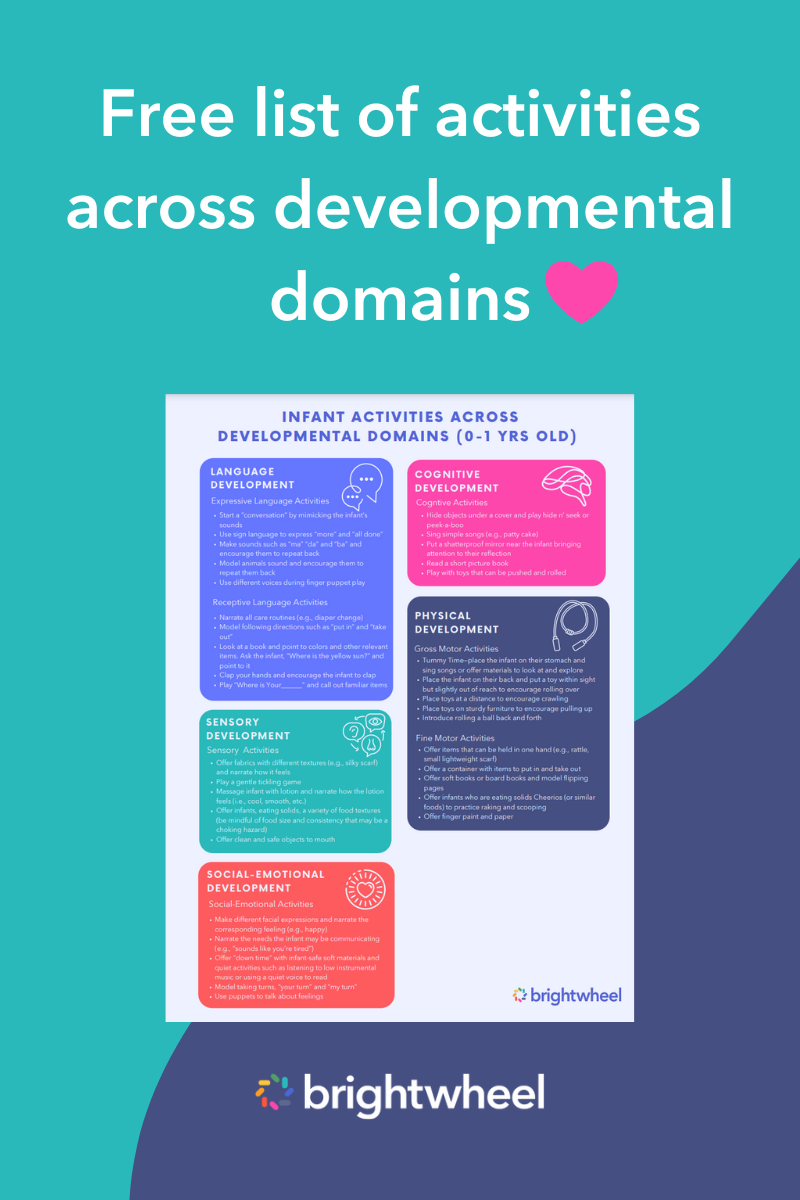Cognitive development refers to the change in children's ability to think, reason, and explore. As children grow, they develop cognitive skills to understand their world better.
You can help preschoolers further their cognitive development with activities that improve their pattern recognition, literacy, memorization, and other cognitive skills. These skills are the foundation of the advanced concepts they’ll learn in kindergarten, elementary school, and beyond.
Types of cognitive activities for toddlers
In a preschool classroom, implementing various types of cognitive activities for toddlers is crucial for their overall development. These activities engage children's thinking, problem-solving, and memory skills, helping them build a strong foundation for future learning.
Examples of cognitive activities for toddlers include puzzles, sorting games, matching objects, and simple math exercises. These activities not only stimulate their cognitive abilities but also enhance their language skills, fine motor coordination, and social skills. By providing a rich cognitive environment, preschool teachers can foster curiosity, critical thinking, and creativity in young minds, setting them up for success in their educational journey.
Cognitive development activities for pattern recognition
Developing pattern recognition skills helps preschoolers recognize differences between items and make predictions. You can help toddlers build pattern recognition skills with blocks, toy towers, and beads.
Polygon pattern blocks
This activity helps children develop their motor skills, differentiate between colors and shapes, and identify and continue patterns.
Create simple patterns with polygon blocks and have the children choose the correct block to complete the pattern. As you build your pattern, say the color and shape of each block, then prompt the child to complete the pattern. For example, you can prompt the child by saying, "Green triangle, orange square, green triangle” and ask them what comes next.
Snack patterns
This activity helps children develop their hand-eye coordination and motor skills while creating patterns.
At mealtimes, have preschoolers organize small snacks such as pretzels, cereal pieces, goldfish crackers, or fruit into patterns, then have them recite the pattern to you.
Bead threading
This activity helps children develop hand-eye coordination and motor skills, identify colors, and create patterns.
Instruct children to thread beads onto a piece of yarn or string to create necklaces and bracelets. Next, ask them to make patterns with different colors of beads. Once they have completed the pattern, have them recite it while pointing to each bead.
Cognitive development activities for language skills
Developing language skills helps preschoolers communicate emotions, analyze ideas, develop the ability to rationalize, and make sense of the world around them.
You can help toddlers develop their language skills using rhyme scavenger hunts, picture books, and tongue twisters.
Rhyme scavenger hunt
This activity helps children recognize rhymes and strengthen their problem-solving skills.
A rhyming scavenger hunt asks toddlers to interpret simple prompts to find objects that rhyme. Tell your children a word and ask them to search your classroom for an item that rhymes with the word. For example, if you ask the children to find something that rhymes with “star,” they may bring you a toy car.
Picture books
Reading picture books with preschoolers helps them build phonological awareness, learn to use context clues, and increase their vocabulary.
When reading to toddlers, ask them questions that lead them to infer about the story and pictures. Questions like, "How do you think this character feels?" and "What do you think will happen next?" encourage children to use cause-and-effect reasoning skills and draw conclusions.
Tongue twisters
Reciting tongue twisters such as Fuzzy Wuzzy Was A Bear, Peter Piper Picked A Peck of Pickled Peppers, and How Much Wood Could A Woodchuck Chuck? with your toddlers can help them strengthen the muscles in their tongues and improve their pronunciation skills and vocabulary.
Cognitive development activities that improve toddlers' memories
Developing memorization skills helps toddlers remember sight words, understand cause-and-effect, and improve their attention and concentration skills. You can help toddlers improve their memorization skills with memory games and sing-alongs.
Zoo story
This activity helps children recall memorized information and identify animals. For this activity, you'll need a bag and toy zoo animals.
Start the activity by saying, "I went to the zoo, and I saw a..." then, remove a toy animal from the bag and say its name. Next, pass the bag to a child and have them repeat the phrase, "I went to the zoo, and I saw a..." and say the name of the animal you pulled from the bag.
Have the child remove another animal from the bag and add it to the sentence. For example, "I went to the zoo and I saw a penguin and an elephant." Then, continue with the next child ("I went to the zoo, and I saw a penguin, an elephant, and a tiger.") Continue until each child has pulled a toy from the bag and added to the story.
Sing-alongs
Singing repetitive songs and nursery rhymes like The Wheels on the Bus, Old MacDonald, and Where Is Thumbkin? with your preschoolers helps them recognize routines and improves their working memory.
The missing item
This activity helps toddlers identify objects and recall memories.
Place a few small objects on a tray. Name each object with your preschoolers, then ask them about its color, shape, or function. These questions will make the items more memorable.
Cover the tray with a towel, then ask the children to close their eyes. Remove the towel from the tray and have the children reopen their eyes. Ask the children to identify the item that you removed from the tray.
Help your preschoolers develop with these cognitive activities
Cognitive activities help children learn how to think, reason and problem solve as well as develop language skills, creativity and self-expression. Engaging in cognitive tasks also helps build a foundation for future learning experiences by fostering critical thinking skills and developing memory retention abilities. With proper guidance from educators and families, these activities can be beneficial for young children's growth and development both now and into the future.



